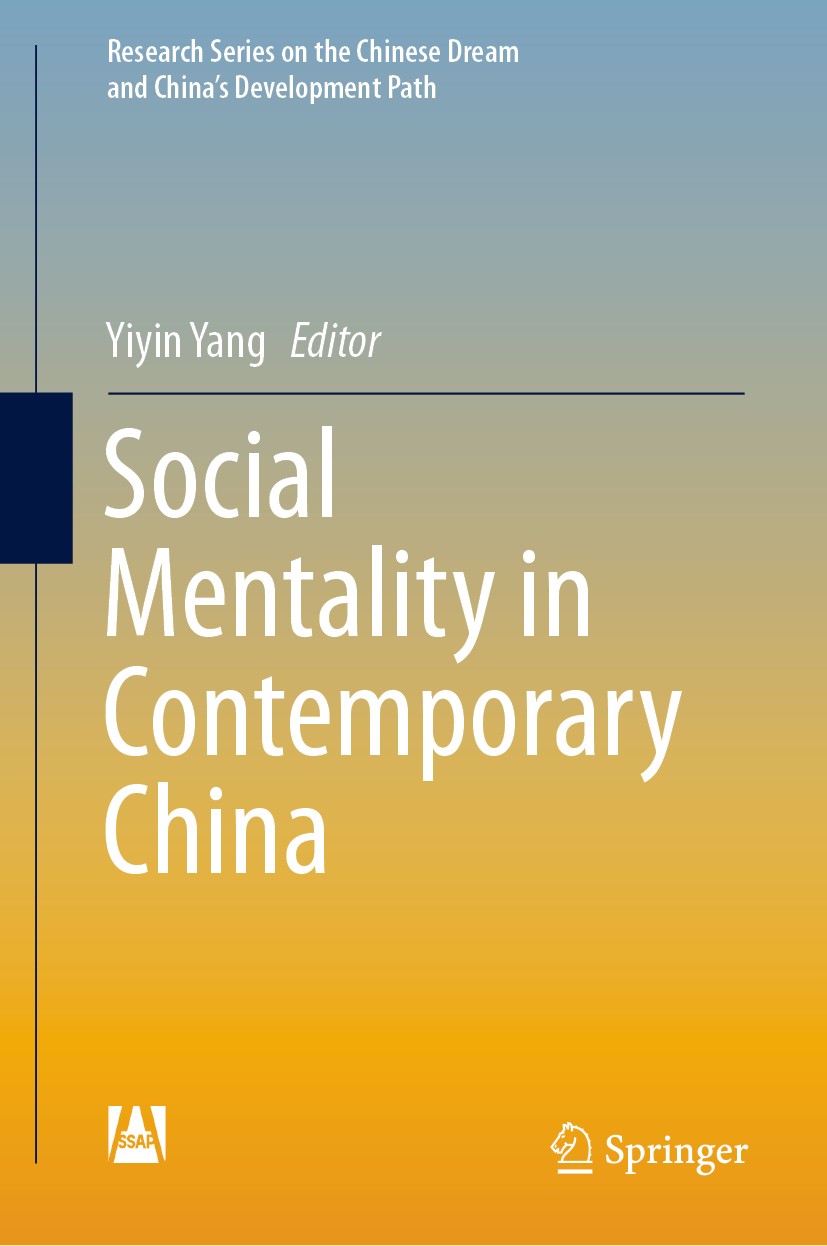| 书目名称 | Social Mentality in Contemporary China | | 编辑 | Yiyin Yang | | 视频video | http://file.papertrans.cn/870/869709/869709.mp4 | | 概述 | Highlights the latest achievements in research on social mentality from a social psychology perspective.Discusses the concept and theoretical framework of social mentality.Analyzes the structure of so | | 丛书名称 | Research Series on the Chinese Dream and China’s Development Path | | 图书封面 |  | | 描述 | This book not only seeks to theoretically analyze the concept, chief characteristics and framework of “social mentality”, but also explores the influence of social mentality on such elements of social functioning as individuals, groups, societies, markets and countries, and the influence of such elements as cultural, social, economic, political and mental factors on social mentality. Besides, this book discusses the structure of social mentality, tools for measuring it, and an indicator system. What’s more, it explores the role of the social mentality mechanism in the construction of harmonious societies. | | 出版日期 | Book 2019 | | 关键词 | Concept of Social Mentality; Theoretical Framework of Social Mentality; Social Psychology; Society and | | 版次 | 1 | | doi | https://doi.org/10.1007/978-981-13-7812-6 | | isbn_softcover | 978-981-13-7814-0 | | isbn_ebook | 978-981-13-7812-6Series ISSN 2363-6866 Series E-ISSN 2363-6874 | | issn_series | 2363-6866 | | copyright | Social Sciences Academic Press 2019 |
The information of publication is updating

|
|
 |Archiver|手机版|小黑屋|
派博传思国际
( 京公网安备110108008328)
GMT+8, 2026-2-9 18:22
|Archiver|手机版|小黑屋|
派博传思国际
( 京公网安备110108008328)
GMT+8, 2026-2-9 18:22


